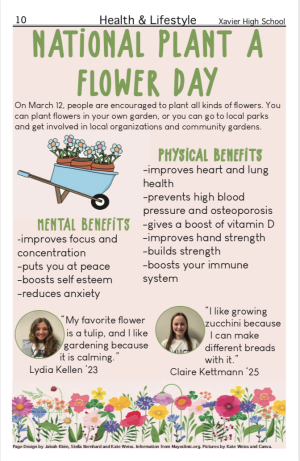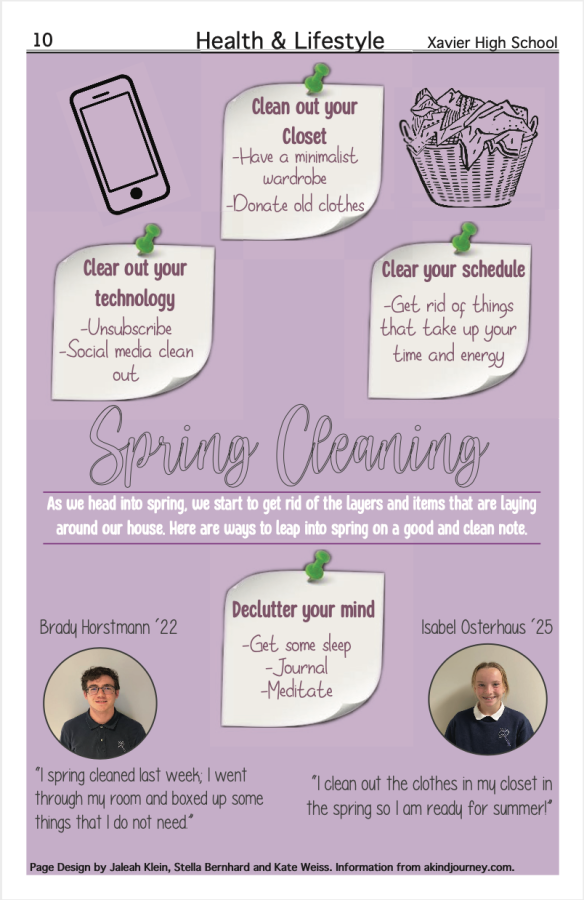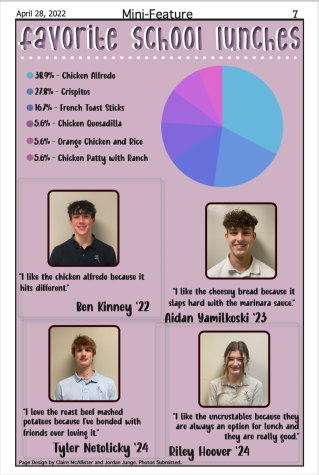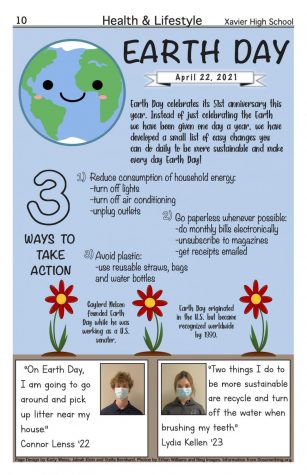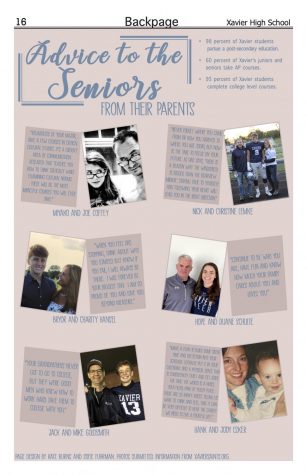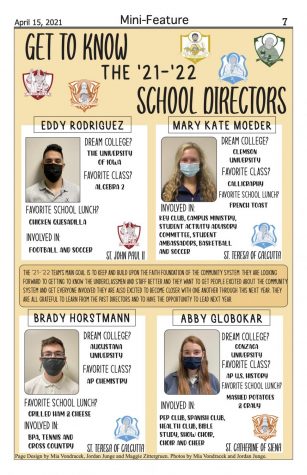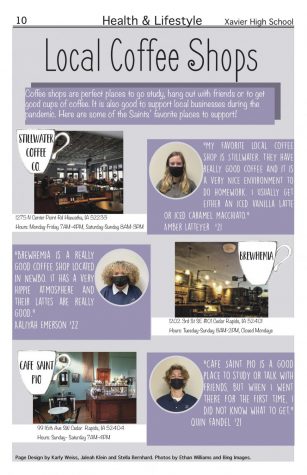On the front lines
January 28, 2021
As Eve Ensler, an American playwright and performer, once said, “The people who are on the front lines every day in hospitals…are the good of the world.”
Caitlin Shea, a public health registered nurse and a sister to a Xavier student, received her first dose of the Moderna COVID-19 vaccine on Wednesday, January 13, 2021. She works at Johnson County Public Health Department in Iowa City, Iowa and has been on the front lines of this pandemic for months. She received the vaccine in order to stop the spread of COVID-19 and to protect herself and the people around her. When it came to getting the vaccine for Shea, it was an easy decision for her to make.
“I believe that those who have manufactured both types of COVID-19 vaccines are public health heroes. They have worked tirelessly to create something that is going to help with herd immunity so that we can start seeing a ‘normal’ world again, or at least figure out what that world might look like,” Shea said. “I am proud and honored to be someone who has received the vaccine. I take that responsibility seriously as someone who cares about the health of the patients I see, the immunocompromised community members who are taking extra precautions that I might end up standing next to in the grocery store and the family and friends that I miss dearly.”
The two main COVID-19 vaccines being distributed in the United States are the Moderna vaccine and the Pfizer-BioNTech vaccine. The Moderna vaccine was designed in only two days and the Pfizer-BioNTech vaccine was developed in around six months. Both vaccines have been found to be over 94% effective in preventing COVID-19 in clinical trials performed. People need to receive two doses of either vaccine in order to get the most successful outcome and highest level of protection from them.
The Comirnaty and Gamaleya (Sputnik V) vaccines are other vaccines being used around the world. These vary slightly from the main vaccines being used in the United States, with the chief differences being in how they were developed. Healthcare workers are working towards distributing the Moderna and Pfizer-BioNTech vaccines throughout the country before the new variant of COVID-19, the B117 strain, which is more contagious than other strains of COVID-19, spreads throughout the United States. Christine Hunt, mother to Shea and a regular volunteer at Xavier, shares an opinion on how important the vaccines are.
“I trust science, so I am looking forward to getting the vaccine and having my loved ones get the vaccine,” Hunt said. “I believe the vaccine is our way out of the pandemic and will allow us to get back to a more normal way of life.”
Shea has been around the vaccine distribution at her workplace and will soon most likely join the team of healthcare workers helping with distribution. She gives an insight as to what the distribution process has been like from her standpoint.
“In my role, I see the underbelly of the distribution and it is a long and grueling process. We are inching away and making progress, but there is a COVID-19 vaccine team in my department constantly meeting and making decisions on allocating vaccines to who and when and how. It is not something anyone is taking lightly, so it feels excruciatingly slow at times,” Shea said. “In my county, the focus is still on trying to reach all healthcare professionals who are more at risk than others because they are seeing patients face to face.”
In certain areas, it has been taking longer to distribute the vaccines. This may be due to state health officials holding back doses for nursing homes, the holiday season’s reduced hours, overworked local health officials left to distribute them and more. Healthcare workers, like Shea, have been working to protect the people around them for about ten months now and Hunt has expressed that it is important to show gratitude towards their efforts.
“I have been truly blown away by the stories of the selflessness of healthcare workers. Thank you does not seem to be enough for these individuals that are risking their lives to care for others,” Hunt said. “It is overwhelming to think of the sacrifices they are making.”
Some individuals have chosen or will choose to not receive COVID-19 vaccinations. This may be due to skepticism over the motives of the pharmaceutical industry or because of the varying recommendations about COVID-19 that organizations, specifically those who have downplayed the threat of COVID-19, have told to the public throughout the pandemic, among other reasons.
The United States Centers for Disease Control and Prevention (CDC) and the State of Iowa are responsible for determining who receives the COVID-19 vaccine. It is undetermined when vaccinations will be available to the general public, however, recently they have been getting distributed to people more at risk, including healthcare workers and patients and staff in nursing homes.
This pandemic has proven to be difficult for most people, going through personal trying times and dealing with isolation and stress. However, some may see the vaccines as a glimmer of hope at the end of a long, dark tunnel.

